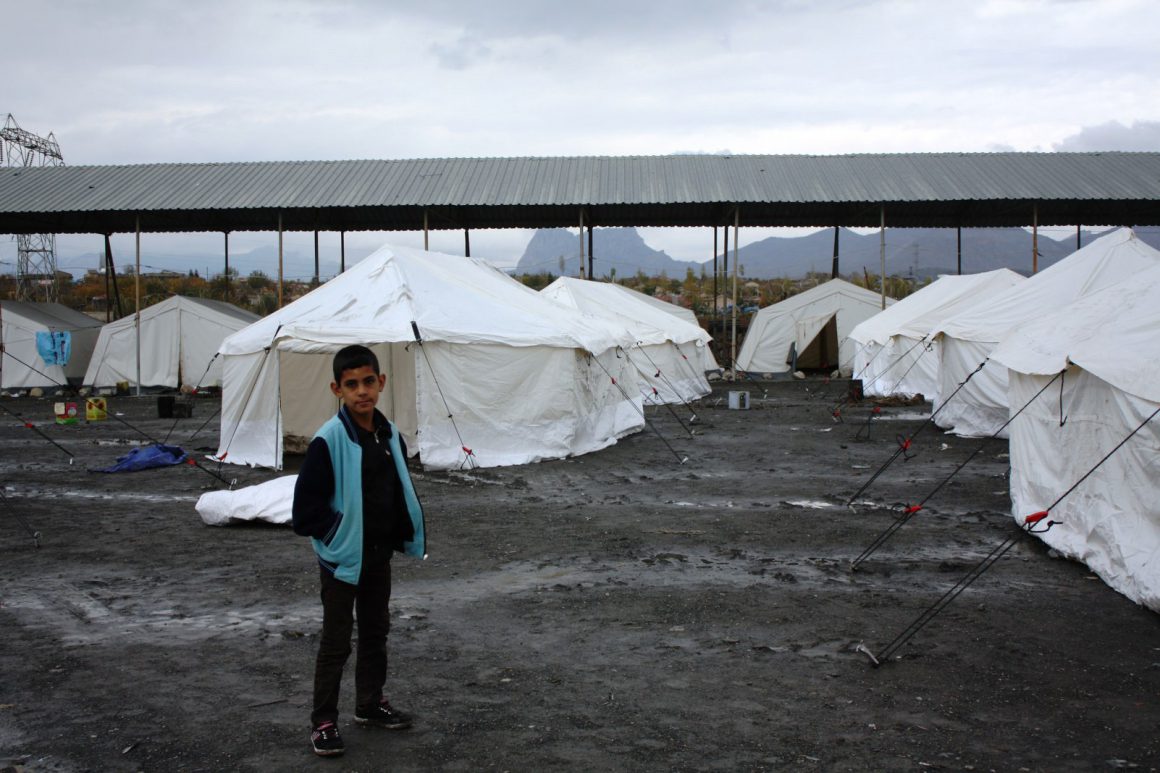The refugee crisis is holding up a mirror to the European Union which reflects a troubling image— an image that cannot be talked away by morality rhetoric.
“The only thing necessary for the triumph of evil is for good men to do nothing,” famously claimed the Anglo-Irish statesman and philosopher Edmund Burke. And doing nothing is precisely what the “good” men and women of Europe have been so busy in the face of the refugee crisis.
Germany’s recent decision to accept several tens of thousands of refugees, is, of course, a step in the right direction. But it is also the very least that one would expect from the EU’s strongest economy. Besides, it was an evident case of acting-out on the part of a government which could no longer sustain the growing pressure of public opinion brought about, among others, by the photo of 3-year old Aylan Kurdi’s cadaver washed ashore near the Turkish resort of Bodrum.
The image is a potent symbol for the triumph of evil and is destined to become an integral part of our collective historical memory, very much like Nick Ut’s famous 1972 photo of the naked Vietnamese girl, the survivor of a napalm attack. However, the question, whether or not it will be able to change the course of European history, remains open.
Doing something in order to change nothing
Still, Germany’s acting-out was preferable to acts of obvious responsibility-shifting demonstrated by the British and French “solutions” — addressing the plight of refugees from regions afflicted by military conflicts by initiating more military action. Knee-jerk reactions such as these are usually dangerous — especially so, if they intend to cover up guilt.It’s hard to believe that simply bombing the obvious culprits — ISIS and the smugglers — can improve the situation. But the sounds of explosions always seem to be a good method to drown out one’s conscience. At least in their own eyes and, more importantly, in the eyes of the mainstream media, the politicians will be seen as doing something.
However, Germany’s humanitarian act was also, in my opinion, a similar case of doing something in order to change nothing. The way it was set on the European stage had an evident air of moralisation about it . And, as such, it disclosed a deeper-seated unwillingness to act in a more fundamental, history-changing way.
The State of the European Union: A lack of union
A tweet by a known EU-blogger aptly summarised the current state of the European Union: “One border — no common asylum/migration policy. One currency — no common fiscal policy.” These 100 characters reveal more than the bulk of Mr. Junker’s 10,000 words in his address to the European Parliament on Wednesday managed to obfuscate.
But why is it that the Union cannot produce a common solution? Is it really due to differences in moral standards among its member states? What lies at the root of the difference between Germany’s unilateral acceptance of refugees and, say, Hungary’s coercive strategies?
The above-mentioned tweet stresses an important intimate connection between the political and the economic components of this crisis. It is as difficult to distinguish a lack of common migration policy from a lack of common fiscal policy, as it is to classify the tragedy on the European borders as a migrant crisis or a refugee crisis.
There can be no common European solution to migration as long as the EU functions as a set of institutions that maintain systematic inequalities among member states and that assign the role of rich producers and exporters to some countries while reducing others to poor consumer-importer states.
Even though Germany is far from being the sole profiteer, it has been profiting from the lack of common fiscal policy in the EU and, thus, it is expected to drag its feet in the process of its introduction. Additionally, Western European industries have greatly benefited from the EU’s eastward expansion.
Escaping a lack of future
What is hiding behind the outright unwillingness of member states like Hungary, Slovakia, or Poland to accept refugees and behind the often openly racist nature of the arguments their leaders invoke are not different moral standards. It might be, among others, an expression of anxious awareness that the influx of migrants will replace the local youth, which, often faced with high unemployment rates and a political vacuum, choose to flock to better-off countries at the EU’s centre or leave Europe altogether. A refugee is one who escapes the lack of a future.
Isn’t this precisely how one should read Viktor Orban’s recent, seemingly marginal comment that not only the refugees but some Hungarians, too, want the “German life”?
The refugee crisis, as did previous crises, once again demonstrates that the problem is not so much the European institutions themselves but nation-states, as well as other partial interests, that exert excessive powers over these institutions. The lack of unified political will to help refugees is rooted fundamentally in the systemic inequalities within the EU. No compulsory ethics can hide this deeper and more institutionalized lack of solidarity in Europe. Essentially, moralising is an old form of populism which has often been used to smother the much-needed debate surrounding inequality.



